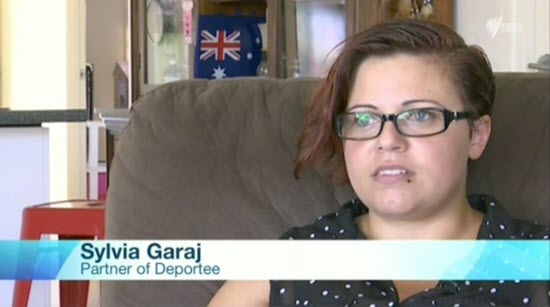Ombudsman slams immigration authorities over deportations

10 January 2017
By Gareth Boreham and Myles Morgan
Commonwealth Ombudsman Colin Neave has criticised the federal government's management of cancelling visas of people who have served jail sentences.
He said the government has broken its promise to revoke visas well before their expected release dates.
Former detainees have been separated from their families for prolonged periods because they remain in prison after their release dates while their cases are being determined.
“The delays in deciding revocation requests undermines the department's policy of giving primary consideration to the best interests of those who have young children and/or experience prolonged family separation,” Mr Neave said.
The ombudsman has called for standard processing time frames, better co-operation between state and federal authorities and priority to people with responsibilities to care for children.
A string of legal changes have left New Zealanders virtually unable to get Australian citizenship, with hundreds being sent to immigration detention centres.
A second report from the ombudsman investigated the number of people having bridging visas cancelled because of a criminal charge, conviction or threat.
It documented 697 New Zealanders as having been deported between January 2014 and February 2016.
In total, over 1200 people were deported, mostly for violent assaults and sexual offences. Approximately 150 people were deported for 'non-violent offences' and crimes like fraud and deception.
Brisbane mother says sudden deportation left family vulnerable
Brisbane mother Sylvia Garaj told SBS her son has been left without a father after he was deported to New Zealand last week over traffic offences.
“He's going up to the phone and replaying his messages. He'll kiss the phone. Every time the phone rings he thinks it's going to be his dad,” she said.
'[Her partner] Daniel has been here for nearly eight years and his whole family is here.”
Ms Garaj said her partner Daniel Nikora was deported after being jailed for the traffic crimes.
“He was in jail for six months and he finally got sentenced and they gave him a 12-month sentence,” she said.
His prison sentence allowed the government to cancel his visa because his cumulative prison time would be more than 12 months.
“The rule isn't fair because there are all different types of crimes that you can commit,” Ms Garaj said.
“[Visa holders] should be given a second chance, at least for minor crimes.”
“You're getting relatively minor cases and relatively minor criminal records used as a basis to revoke visas.”
She said she has been left to provide for her three children and is beginning to sell her belongings. She said she is also considering moving into a smaller home.
The tough visa rules have been labelled 'cruel' by the Australian Lawyers Alliance.
“You're getting relatively minor cases and relatively minor criminal records used as a basis to revoke visas,” said the Alliance's Greg Barns.
“The government is setting it up so the detention itself is as cruel as possible and individuals just give up and go back to New Zealand and don't fight their cases.”
Investigators have received complaints about some being held in immigration detention for prolonged periods - even after criminal charges were withdrawn or the accused was acquitted, fined or given a good behaviour bond.
“To suddenly deny a person their liberty to live freely in the community based on nothing more than an allegation that has led to the laying of criminal charges, raises the question of whether the department is acting prematurely by cancelling a visa and whether the department is not following the spirit of the explanatory statement that introduced this legislation,” the report said.
Mr Neave said the ongoing detention of many individuals in this cohort was inappropriate.
He added it had “negatively impacted upon their mental health”.
He called on the Immigration Department to give people adequate time and resources to seek legal advice and mount a defence if they faced visa cancellations.
The department defended its strengthening of its deportation measures, saying it made no apology for further protecting the Australian community.
A spokesperson told Fairfax: “Since the laws were strengthened, the government has cancelled the visas of serious criminals including 158 visas for child sex offences, 361 for assault, 78 for rape and 33 for murder, to name a few.”
Watch the SBS video.